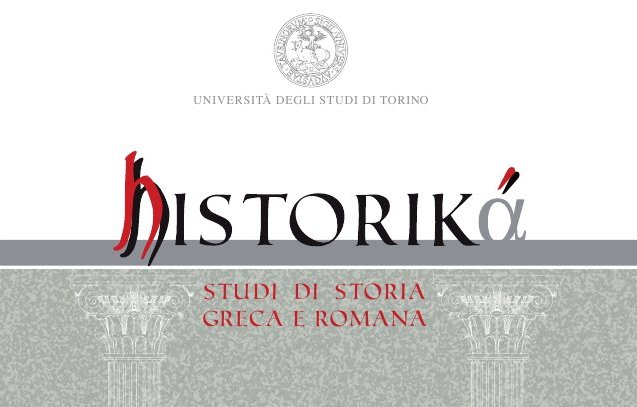Aristote, Aristoxène et le demos alieutikòs de Tarente
DOI :
https://doi.org/10.13135/2039-4985/1933Résumé
In the IVth Book of Politics, Aristotle, classifying the different eide tou demou present in different democratic poleis according to the different types of the prevailing socio-economic activities carried on by the main component of those demoi, mentions Tarent and Byzanz as examples of cities whose demos includes a very great number of fishers (alieis). While for Byzanz the large presence of fishers and the economic importance of fishing and related activities are richly documented and widely studied, in the case of Tarent the evidence is relatively poor, especially for pre-Roman and even pre-Hellenistic times, thus leaving almost isolated the testimony of Aristotle.
In this paper, after reviewing and commenting on the available documentation - literary sources as well as archaeological evidence -, I shall propose to add to this lean dossier an interesting fragment, so far not taken into account, by Aristoxenus of Tarent, a prominent member of Aristotle’s school, where we find a reference to alieis kai thalattioi as lipernetes, that is ‘those who lost crops’ and therefore make their living by selling marine products (ta tou alòs).
Téléchargements
Publiée
Numéro
Rubrique
Licence
Gli autori che pubblicano su questa rivista accettano le seguenti condizioni:
- Gli autori mantengono i diritti sulla loro opera e cedono alla rivista il diritto di prima pubblicazione dell'opera, contemporaneamente licenziata sotto una Licenza Creative Commons - Attribuzione che permette ad altri di condividere l'opera indicando la paternità intellettuale e la prima pubblicazione su questa rivista.
- Gli autori possono aderire ad altri accordi di licenza non esclusiva per la distribuzione della versione dell'opera pubblicata (es. depositarla in un archivio istituzionale o pubblicarla in una monografia), a patto di indicare che la prima pubblicazione è avvenuta su questa rivista.


 The journal has been approved for inclusion in DOAJ. The DOAJ listing of the journal is available at
The journal has been approved for inclusion in DOAJ. The DOAJ listing of the journal is available at 

